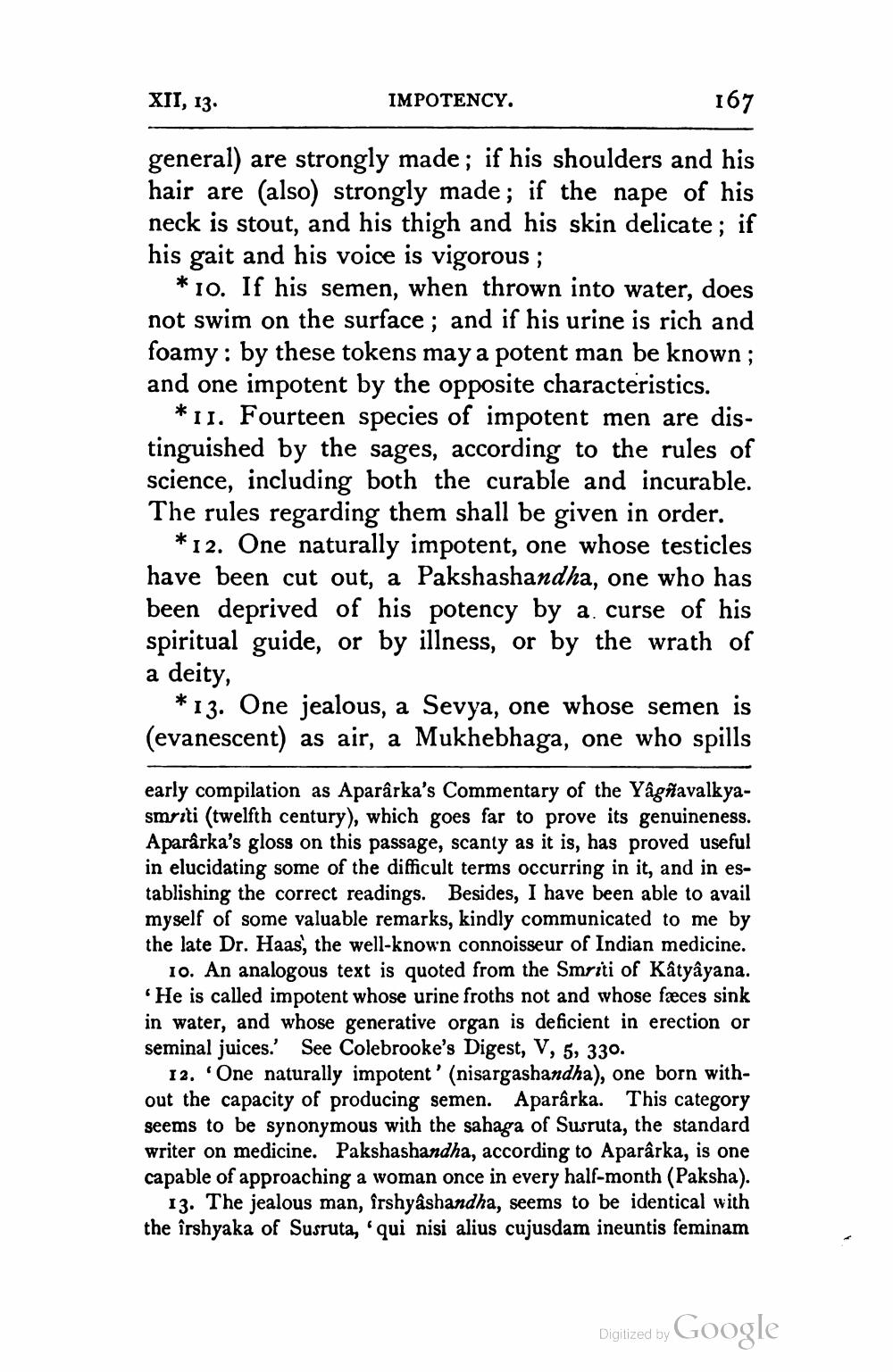________________
XII, 13.
IMPOTENCY.
167
general) are strongly made; if his shoulders and his hair are (also) strongly made; if the nape of his neck is stout, and his thigh and his skin delicate; if his gait and his voice is vigorous ;
*10. If his semen, when thrown into water, does not swim on the surface; and if his urine is rich and foamy: by these tokens may a potent man be known; and one impotent by the opposite characteristics.
*11. Fourteen species of impotent men are distinguished by the sages, according to the rules of science, including both the curable and incurable. The rules regarding them shall be given in order.
*12. One naturally impotent, one whose testicles have been cut out, a Pakshashandha, one who has been deprived of his potency by a. curse of his spiritual guide, or by illness, or by the wrath of a deity,
*13. One jealous, a Sevya, one whose semen is (evanescent) as air, a Mukhebhaga, one who spills
early compilation as Aparârka's Commentary of the Yågñavalkyasmriti (twelfth century), which goes far to prove its genuineness. Aparârka's gloss on this passage, scanty as it is, has proved useful in elucidating some of the difficult terms occurring in it, and in establishing the correct readings. Besides, I have been able to avail myself of some valuable remarks, kindly communicated to me by the late Dr. Haas, the well-known connoisseur of Indian medicine.
10. An analogous text is quoted from the Smriti of Kâtyâyana. He is called impotent whose urine froths not and whose fæces sink in water, and whose generative organ is deficient in erection or seminal juices.' See Colebrooke's Digest, V, 5, 330.
12. One naturally impotent' (nisargashandha), one born without the capacity of producing semen. Aparârka. This category seems to be synonymous with the sahaga of Susruta, the standard writer on medicine. Pakshashandha, according to Aparârka, is one capable of approaching a woman once in every half-month (Paksha).
13. The jealous man, îrshyâshandha, seems to be identical with the îrshyaka of Susruta, qui nisi alius cujusdam ineuntis feminam
Digitized by Google




